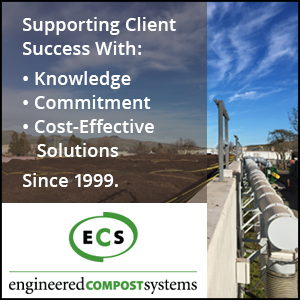“The legal life of compost is more interesting than you have probably ever imagined! Diverse laws apply to every stage of the composting process, and they are changing rapidly.” So say the Sustainable Economies Law Center and the Institute for Local Self-Reliance (ILSR) on their joint community composting resources website, compostlaw.org.
The resources are designed to help sort out the many layers of legislation and regulation based on the step-by-step activities involved to make compost, especially at the community-scale. “Our goal is to help everyday people understand the basics so that they can better interact with agencies overseeing the compost industry, to identify barriers to small-scale solutions, and to empower people to help shape compost laws as they evolve,” notes the website. “As part of our Community Compost Law & Policy Project, ILSR and The Law Center are collaborating to provide community composters with opportunities to share knowledge, discuss best practices, and strategize around legal and policy issues confronting community composting.” There is a link to a webinar the two organizations presented on “Community Compost Law & Policy.”
Very helpful tools on the website include:
- A 21-page, easy to read and digest, “Soil Policy Party” Curriculum that offers suggested ways to “dig in, learn, and take action with soil avengers in your community.” There are tons of links to related resources.
- Compost Legal Research Roadmap: Two-page table offers a simplified, “though imperfect,” set of categories of the kinds of laws and policies that apply throughout the composting process.
- State-by-State Small Compost Facility Permitting Rules: Updated in Spring 2020, this table — with live links — includes state statutes, administrative regulations, and primary agency with oversight; size of facilities that are fully exempt from permitting requirements, and other forms of composting that are fully exempt; and sizes or types of facilities that, while not exempt, have a relatively simple registration or notice requirement.














